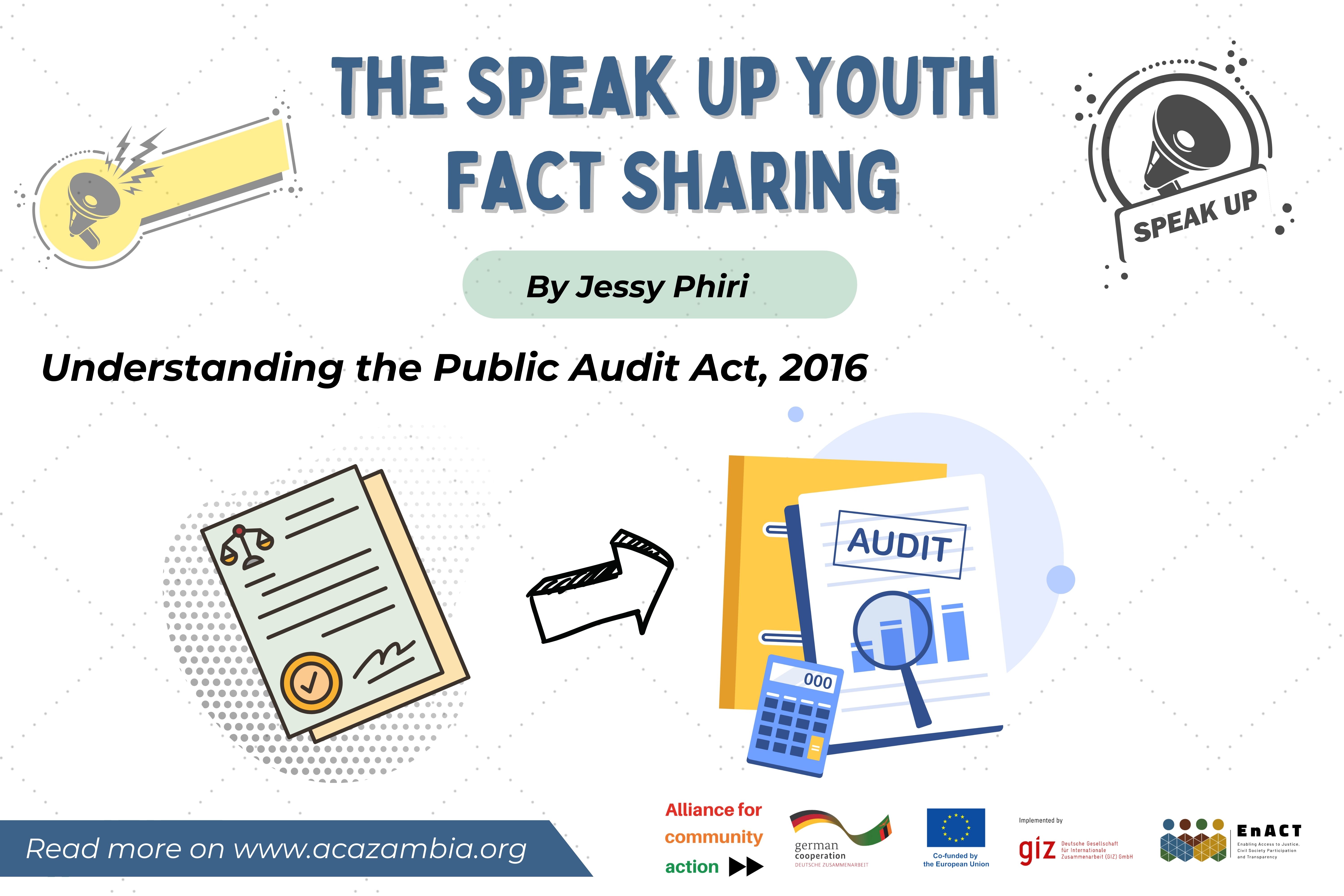
By Jessy Phiri, Citizen Journalist.
The Public Audit Act, 2016 aims to enhance the independence and autonomy of the National Audit Office, strengthening its functions. It establishes a framework to promote efficiency, accountability, effectiveness, and transparency in public administration through oversight and audit of public funds and performance. The Act aligns with United Nations Resolution A/66/209 on promoting accountability and transparency in supreme audit institutions. It replaces the Public Audit Act 1980 and addresses matters related to public finance and performance audit.
Functions of the National Audit Office:
Conduct audits under the Public Finance Act, 2004, and other relevant laws.
Recommend the organizational structure and technical competencies needed for efficient and effective performance.
Provide recommendations to the commission regarding terms and conditions of service for officers and employees of the National Audit Office.
Undertake any other activities necessary for or incidental to its functions under the Act.
Accessing Auditor General’s Reports:
The Auditor-General is mandated to submit audit reports to the President and the National Assembly within nine months after the end of each financial year.
Reports of audits on the Republic’s accounts are published once presented to the Speaker and laid before the National Assembly, as per Part III Section 31 of the Public Audit Act, 2016.
Published reports are made available to the public through various channels, including the National Archives, libraries of public higher education institutions, public libraries, and the website of the National Audit Office.
The Auditor-General may also distribute copies of audit reports to audited institutions and other relevant parties for informational purposes.
The Public Audit Act, 2016 can be accessed here.
Speak Up Youth Project is implemented in partnership with BYTA FM in Choma, Sun FM on the Copperbelt, Three FM in Chipata and Voice of Kalomo in Kalomo with financial support from the German Development Cooperation.